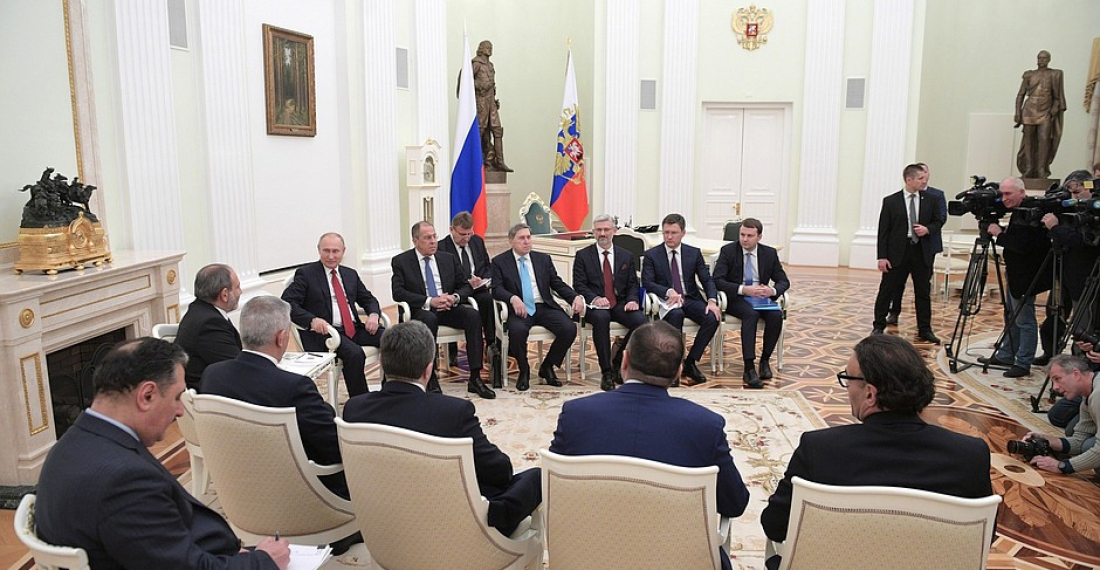The long-awaited meeting between Armenian prime minister Nikol Pashinyan, and Russian president Valdimir Putin, took place on Thursday (27 December). Pashinyan travelled to Moscow earlier in the morning for his first meeting with a foreign leader since being elected in a landslide election victory on 9 December.
Welcoming Pashinyan to the Kremlin, Putin acknowledged Pashinyan's election victory:"
"We are very glad to see you here in Moscow. This is your first visit following the impressive victory in the parliamentary elections. I want to wish you success in the implementation of the plans you have set before yourself and your team for the benefit of the Armenia and the Armenian people. There is no need to describe our relations, they are really allied with rather broad content. It's enough to mention only the fact that we confidently preserve the 1st place among Armenia's foreign economic partners. Russia's share amounts to 25.5%. Over 2000 enterprises operate in Armenia, trade turnover rises. Last year is rose by nearly 30%. In the 10 months of this year it rose by nearly 18%. I think there is a positive dynamic, and it should be preserved."
But, while Pashinyan was happy to talk about economics, Putin had other things on his mind:
"We will do everything that depends on us in order for us to maintain this level of relations, not only in this area, but also in other areas. I am referring to the sphere of security, our cooperation in the CSTO, multi-dimensional cooperation in the economy within the framework of the Eurasian Economic Union."
On his part Pashinyan expressed interest:
"We are interested in developing relations in all the directions. I am confident the newly elected parliament will develop also inter- parliamentary relations. We are also optimistic over our future economic relations. We are interested in the further integration in the sidelines of the Eurasian Economic Union and we take our presidency over the Eurasian Economic Union very serious. I am confident that as a result of our presidency we will have more productive integration in the sidelines of the EAEU.I am also confident that we have a rather expanded agenda for today's discussions and we are in a positive mood. I am confident we will have positive results".
If Pashinyan said anything about security, or the CSTO, he left it for the private discussions that followed.
source: commonspace.eu with agencies
photo: A meeting between the president of Russia and the prime minister of Armenia, and their delegations, at their meeting in the Moscow on 27 December 2018 (picture courtesy of the press sevice of the president of Russia)






